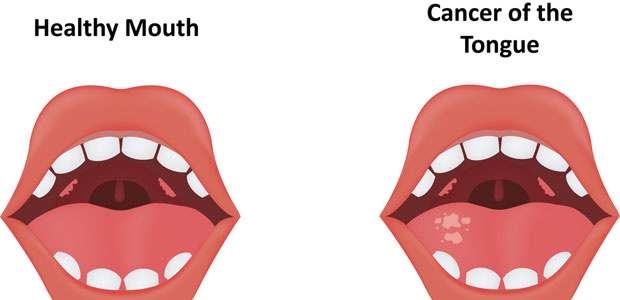
What Is Tongue Cancer?
Tongue cancer is the most common oral cancer, which mostly occurs in the margin of tongue, and other regions such as tip, dorsum and root of tongue. Tongue cancer is often manifested as ulcerated or infiltrative type.
How Common Tongue Cancer Is?
According to statistics, the incidence rate of tongue cancer accounts for 0.8 % to 1.5% of systemic malignant tumors, 5% ~7.8 % of malignant tumors in head and neck, and 32.3% ~ 50.6 % of oral cancer. The incidence rate of tongue cancer is higher in men than women, and average age of incidence is about 60 years old.
What Are Causes of Tongue Cancer?
The causes of tongue cancer have not been fully determined, but at present a consistent view is that chronic injury, ultraviolet radiation, X-ray and other radioactive substances can be pathogenic factors of tongue cancer, in addition, mental factors, endocrine factors, immune state and genetic factors are also found to be related to the occurrence of tongue cancer.
What Are Symptoms of Tongue Cancer?
What Are Diagnostic Methods of Tongue Cancer?
What Are Treatment Methods for Tongue Cancer?
What Are Nursing and Care Methods After Surgery?
At the day after surgery, patients should lie down flat (do not use pillow), and at the next day patients can lie on bed in a semireclining position, so as to reduce head, facial and wound congestion and edema.
Closely observe vital signs of patients and keep respiratory tract clear.
Observe whether drainage tube is smooth, recording color, quality, and quantity of drainage, if any abnormality occurs, it should be immediately reported to doctors.
After surgery, patients should take nutrition meal by nasal feeding. After7- 10 days, patients can try to eat liquid food. Guide patients to do good oral care and keep oral cavity clean.
 viber
viber